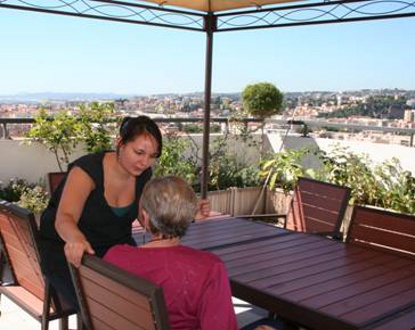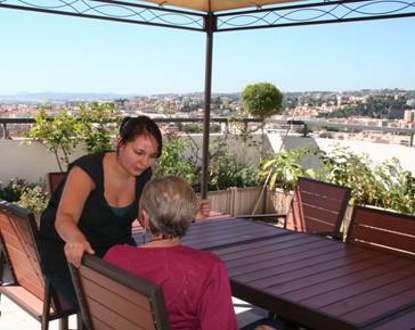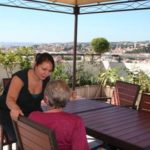Alzheimer’s disease is not a trivial illness. Particularly affecting seniors, it is a concern. Facing it, “we are somewhat like we were with cancer thirty years ago,” says Dr. Kazarian, a gerontologist at the CCAS in Nice. Focus on its care management…

Alzheimer’s disease is a neurodegenerative disease that is difficult to diagnose. Several factors need to be considered: symptoms such as memory loss, behavioral disorders, dysfunctions of daily life… So many indirect signs that require regular evaluation by the attending physician. A memory consultation with a geriatrician and a CT or MRI scan often complete a diagnosis that is made late.
Yet Alzheimer’s can appear in younger subjects, on average 60 years old.
The management
Placement in an institution is not inevitable. Staying at home is a solution as long as the behavioral disorders are not too severe. In this context, there are four Alzheimer’s welcome units in Nice. These units establish cognitive stimulation workshops aimed at repeating certain gestures, marking time and space. Entry into a classic EHPAD becomes necessary when wandering issues become dangerous.
The context in which the diagnosis is announced impacts this management. It is essential that the person and their family do not find themselves alone facing the disease. From the beginning, the healthcare provider must address the question of organization: what is the person’s environment? Is there a companion? Is the house adapted? Will the caregiver sustain their energy over time?… Social support is also necessary because the disease has a cost, and the APA is not enough for 24/7 home care. An evaluation of possible assistance is needed.
When the person with Alzheimer’s stays at home, the question of support arises. It’s a real challenge for society. The caregiver must also ensure they maintain their own life to avoid burnout. The association France Alzheimer 06 plays a pioneering role in training partners or the family with exchanges and the acquisition of knowledge.
Placement in EHPAD
Entry into an institution should not be seen as a last resort. It should be anticipated; one must visit the facilities, meet the caregivers in an interview… They work as a team and can provide empathetic support, different from that of the family but potentially just as reassuring. The important thing is to provide non-drug treatment of the disease to avoid resorting to sedatives.
There is no shortage of institutional places in the department, but they are poorly distributed. The problem arises when someone in GIR 1 or 2 arrives as an emergency and wants to stay in Nice. The issue of income is also problematic; 99% of individuals followed by the CCAS have modest incomes. The General Council has thus established a new agreement requiring private establishments that open to reserve 20% of their places for low-income individuals.
Prevention and anticipation are therefore paramount. The disease progresses over about ten years, so it is necessary to consider the appropriate care management as early as possible. The truth should not be hidden: a person with Alzheimer’s has an emotional memory that does not disappear; they must be treated with dignity. Help must also be accepted: “Entry into EHPAD does not only concern the ill individual but also their family,” concludes Dr. KAZARIAN.



